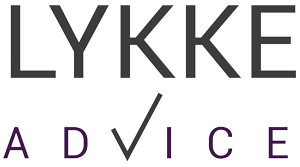Series Introduction: What Prospects for SMEs in the EU?
During critical economic junctures, the EU’s public image often tends to deteriorate noticeably, and local businesses happen to perceive a disconnect from the decision-making hubs in Brussels, where crucial decisions are made for their future. But is this gap unbridgeable? Can EU policies be adjusted to accommodate the needs and interests of both large, multinational corporations as well as family-owned businesses and smaller enterprises? Conversely, how can SMEs effectively engage with EU policymakers in Brussels to ensure their concerns are considered and their voices are heard? In our article series, we will try to explore these pressing questions. Stay tuned for our publications and do not miss our upcoming event on the topic!
SMEs’ Regulatory Challenges in the EU arena
In some national newspapers, EU policies are often depicted as inconsequential, if not even harmful, for the myriad of small and medium-sized enterprises (SMEs) that inhabit the European economic landscape. Considering that companies with fewer than 250 people employed1 represent 99% of all businesses in the EU, and lie therefore at the core of EU prosperity, a similar perception of EU legislation is certainly alarming.
Significantly challenged by the latest social and economic developments, occurring both at the global and regional levels, SMEs seem to feel a sense of abandonment vis-à-vis the Union, which they often regard as a mere enforcer of unnecessary bureaucracy and unattainable standards against the backdrop of an already precarious situation. Indeed, while large companies may find it easier to deal with regulatory compliance thanks to their greater internal administrative capacity and better access to a wider array of financial instruments, smaller firms may find themselves overwhelmed by the burdens these impose.
In a 2023 Eurobarometer survey, 34% of SMEs across the entire Union rated ‘regulatory obstacles or administrative burden’ as the most serious problem they currently face in their business operations, second only to ‘difficulties in finding employees with the right skills’ (selected by 54% of respondents).
A notable example of compliance challenges from recent newspaper headlines is the Directive on Green Claims, a 2023 European Commission’s proposal that sets rules on what type of environmental claims companies can make and insists that they should be verifiable. According to the current text, companies will have to substantiate claims they make about the environmental footprint of their products and services by using standard methods for quantifying them. While the goal of empowering consumers and encouraging them to adopt more sustainable purchasing behaviors is commendable, the industry is expressing concerns that overly onerous information requirements might have unintended consequences, potentially leading to brands adopting less sustainable practices if they are subsequently unable to effectively communicate those choices to consumers.
Unlocking the Potential: SMEs’ Potential Benefits from EU Policies
But while compliance with demanding norms is undoubtedly a consequence of being based in the EU, this is just one side of the coin.
As a starter, it must be acknowledged that a central pillar of the Commission’s SME Strategy for a sustainable and digital Europe is a steady commitment to reducing those legal and practical obstacles that might hamper SMEs’ access to the Single Market. With these necessary counterbalances being provided, small and medium-sized enterprises can significantly benefit from the standardization brought about by EU law, as this can help reduce costs, improve innovative capacity, and enhance competitiveness. Additionally, access to the Single Market allows SMEs to forge strategic partnerships across borders. Such collaborations, whether in the form of joint ventures, strategic alliances, or technology-sharing agreements, open doors to new opportunities for growth and expansion.
A second crucial component of the EU SME Strategy is constituted by funding opportunities, which are exceptionally important for both startups and scale-ups, as they mostly rely on external finance for innovation, digitalization, internationalization, and upskilling. Thanks to EU support, businesses have easier access to guarantees, loans, and equity capital. For instance, COSME is the EU program that supports small and medium-sized enterprises in accessing finance in all phases of their lifecycle, from creation to expansion or business transfer.
Lastly, the EU is devoted to promoting entrepreneurship across the Member States, offering numerous learning and networking opportunities, such as educational and training programs, and providing economic incentives, especially to women, youth, and family-led enterprises. This effort aims to foster a supportive ecosystem where SMEs can flourish and contribute to economic growth and innovation.
In conclusion, while navigating the EU regulatory framework might pose a challenge for SMEs, it is evident that EU policies also offer unique opportunities for prosperity. By wisely and consciously leveraging EU initiatives, SMEs can unlock their full potential and thrive in the European economic landscape, thereby contributing to boosting innovation and progress.
To this end, actively engaging in Public Affairs initiatives becomes crucial. It is for this reason that entrusting the expertise of a consultancy like Lykke Advice emerges as an ideal strategy for SMEs to effectively pursue their political objectives and ensure that SMEs remain central to EU policies.
Contact us to find out more about what we can offer to support your business and help you navigate the EU landscape and register for our upcoming event on the topic!
- This is the official EU definition of ‘SME’, available at: Micro-, small- and medium-sized enterprises: definition and scope (europa.eu) ↩︎


